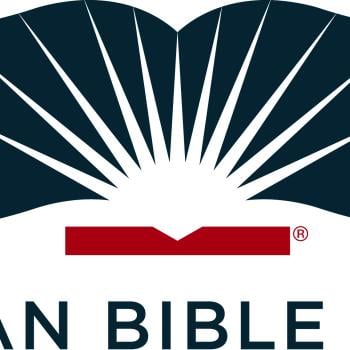The traditional church teaching about God is that God is a Trinity of three co-equal and co-eternal Persons: the Father, the Son (Jesus Christ), and the Holy Spirit. Anyone who reads my blog much knows that I was a Trinitarian for twenty-two years, and then I changed to believing that the Bible presents God as a single person, whom Jesus regularly called “Father,” and the Bible does not say Jesus is God. Yet I also believe everything else the post-apostolic church has proclaimed about Jesus, especially that he died for our sins on the cross as Savior, was resurrected from the dead, ascended to heaven, sat down at the right hand of God on God’s throne, and he will return in the future with his worldwide kingdom given to him by God.
I then wrote a 500-page book about the Bible not saying Jesus is God entitled The Restitution of Jesus Christ (2008) in which I cite the writings of over 400 scholars and interact with them. (To see a list of 130+ posts of 2-3 pages each which represent condensations of this book, go to Kermit Zarley Blog and click on “Christology” in the header bar.)
Over the past few years, I increasingly have come to suspect that the baptismal formula in Mt 28.19b is not original, so that it is an interpolation inserted from a later time.
Matthew 28.19-20 is represented as a saying of the risen Jesus to his disciples. It reads as follows in the NRSV: “All authority in heaven and on earth has been given to me. Go therefore and make disciples of all nations, baptizing them in the name of the Father and of the Son and of the Holy Spirit, and teaching them to obey everything that I have commanded you. And remember, I am with you always, to the end of the age.” See my similar blog post on this text entitled “Is the Trinitarian Formula in Matthew 28:19 an Interpolation?”
The threefold baptismal formula of Mt 28.19 also appears in the early, non-canonical literature of The Didache (2x) and Tertullian’s On Baptism. Scholars used to believe the The Didache was written at the end of the 2nd c. But most now believe it was written at the end of the 1st c., though some still hold to late date.
Tertullian (c. 155-c. 240) was a Berber who is believed to have become a lawyer before his Christian conversion. I have been to the Berber mountains in North Africa. Those native Berbers are interesting and seemingly industrious people who dress colorfully.
Tertullian lived and ministered in Carthage in Tunisia, North Africa, which was located on the Mediterranean Sea. He wrote in the early 2nd c., starting in about in 204, though perhaps some of his works were earlier.
Tertullian became a prolific, Christian, apologist author who had an enormous, later influence upon Christianity despite the fact that he was never canonized by either the Western or Eastern branches of Christendom. That is because some of his teachings were questionable. Yet he is regarded as “the father of Latin Christianity” and “the father of Western Theology.”
Tertullian is most known for being the first to apply the Latin word trinitas (trinity) to God (actually, he was not the first as I state in my book), which became the basis for the late fourth century church formulation of the official doctrine of the Trinity. In some of Tertullian’s writings, he calls the Father and the Son “two gods.” (See Dale and Zalta Tuggy, History of Trinitarian Doctrines.)
Tertullian became a Montanist. I think eventually there was a significant Montanist community in Carthage, Tunisia. This Christian sect was first established by Montanus in Phrygia, Asia Minor, and then it spread elsewhere. Montanists emphasized the Holy Spirit, speaking in tongues, and miracles, much like Pentecostalists do today.
Since Montanists so emphasized the Holy Spirit in comparison to other Christians, I think Tertullian could have been an important person who first claimed the Holy Spirit was a person, or Tertullian could have been one of the first Christians who popularized this belief. Since I am no longer Trinitarian, I believe this teaching, that the Holy Spirit is an actual Person, is incorrect. Rather, according to the Bible, the (Holy) Spirit of God is to God what the spirit of man is to man because man was made in the image of God.
The following last paragraph in the wikipedia article on “Didache” is instructive:
“Significant similarities between the Didache and the Gospel of Matthew have been found[5] as these writings share words, phrases, and motifs. There is also an increasing reluctance of modern scholars to support the thesis that the Didache used Matthew. This close relationship between these two writings might suggest that both documents were created in the same historical and geographical setting. One argument that suggests a common environment is that the community of both the Didache and the gospel of Matthew was probably composed of Jewish Christians from the beginning.[5] Also, the Two Ways teaching (Did. 1–6) may have served as a pre-baptismal instruction within the community of the Didache and Matthew. Furthermore, the correspondence of the Trinitarian baptismal formula in the Didache and Matthew (Did. 7 and Matt 28:19) as well as the similar shape of the Lord’s Prayer (Did. 8 and Matt 6:5–13) appear to reflect the use of similar oral traditions. Finally, both the community of the Didache (Did. 11–13) and Matthew (Matt 7:15–23; 10:5–15, 40–42; 24:11,24) were visited by itinerant apostles and prophets, some of whom were heterodox.”













